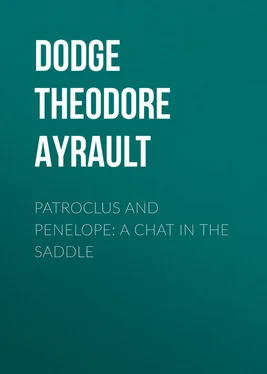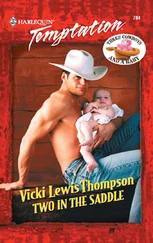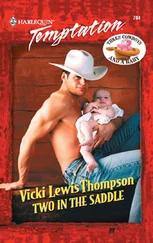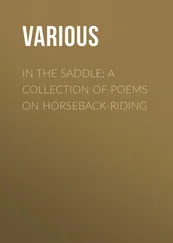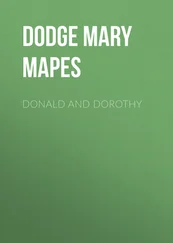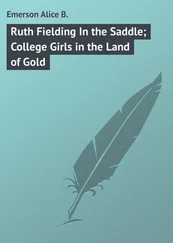Theodore Dodge - Patroclus and Penelope - A Chat in the Saddle
Здесь есть возможность читать онлайн «Theodore Dodge - Patroclus and Penelope - A Chat in the Saddle» — ознакомительный отрывок электронной книги совершенно бесплатно, а после прочтения отрывка купить полную версию. В некоторых случаях можно слушать аудио, скачать через торрент в формате fb2 и присутствует краткое содержание. Жанр: foreign_antique, foreign_prose, на английском языке. Описание произведения, (предисловие) а так же отзывы посетителей доступны на портале библиотеки ЛибКат.
- Название:Patroclus and Penelope: A Chat in the Saddle
- Автор:
- Жанр:
- Год:неизвестен
- ISBN:нет данных
- Рейтинг книги:3 / 5. Голосов: 1
-
Избранное:Добавить в избранное
- Отзывы:
-
Ваша оценка:
- 60
- 1
- 2
- 3
- 4
- 5
Patroclus and Penelope: A Chat in the Saddle: краткое содержание, описание и аннотация
Предлагаем к чтению аннотацию, описание, краткое содержание или предисловие (зависит от того, что написал сам автор книги «Patroclus and Penelope: A Chat in the Saddle»). Если вы не нашли необходимую информацию о книге — напишите в комментариях, мы постараемся отыскать её.
Patroclus and Penelope: A Chat in the Saddle — читать онлайн ознакомительный отрывок
Ниже представлен текст книги, разбитый по страницам. Система сохранения места последней прочитанной страницы, позволяет с удобством читать онлайн бесплатно книгу «Patroclus and Penelope: A Chat in the Saddle», без необходимости каждый раз заново искать на чём Вы остановились. Поставьте закладку, и сможете в любой момент перейти на страницу, на которой закончили чтение.
Интервал:
Закладка:
The hurdles were somewhat over four feet high; behind each was a bar just four feet from the ground. The water-jumps were from fifteen to eighteen feet from taking-off to landing. On a number of occasions (as in Plate XII.) Patroclus covered over twenty measured feet in this jump.
As is manifest from a few of the plates, it was the action of the horse, and not the "form" of the rider, which it was aimed to secure. It is easy to make engravings in which the seat of the rider shall be perfect; but in all the wood-cut illustrations of books on equitation the horse is usually anatomically incorrect, however artistically suggestive. One never sees the photograph of a horse clearing an obstacle in which the rider's form is as perfect as it is apt to be depicted in engravings or paintings. And in some of the within illustrations of road gaits there is apparent a carelessness in both seat and reins which would scarcely do in the accomplishment of the high airs of the manège , but into which a rider is sometimes apt unconsciously to lapse. No one is probably better aware of what is good and bad alike in these plates than the author himself. He appreciates "form" at its exact value, but is constrained to believe that the true article comes from sources far removed from, and of vastly more solid worth than the pigskin which covers a rider's saddle, or the shears which bang his horse's tail. The searching power of photography, however, is no respecter of form or person.
A word of thanks should not be omitted to Mr. Coolidge, whose excellent judgment and keen eye in taking these pictures, without other apparatus than his lens, is well shown by the result, nor to the Lewis Engraving Company for their careful reproductions from material by no means perfect.
Perhaps it should be said that Master Tom and Penelope, who figure in these pages, are as really in the flesh as Patroclus, and by no means mere fictions of the imagination.
There is no instruction pretended to be conveyed by these plates, as there is in the similarly obtained illustrations of Anderson's excellent "Modern Horsemanship." Their purpose is less to point a moral than to adorn a tale. But an apology to all is perhaps due for the very chatty manner in which the author has taken his friend, the reader, into his confidence, and to experienced horsemen for the very elementary hints sometimes given. The pages devoted to Penelope are meant for young riders who, like Master Tom, really want to learn.
THEODORE AYRAULT DODGE.Brookline, Mass., April, 1885 .
I
We are fast friends, Patroclus, and many's the hour since, five years ago, I bought you, an impetuous but good-tempered and intelligent three-year-old colt, whom every one thought too flighty to be of much account, that you and I have spent in each other's company upon the pretty suburban roads of Boston. And many's the scamper and frolic that we've had across the fields, and many's the quiet stroll through the shady woods! For you and I, Patroclus, can go where it takes a goodish horse to follow in our wake. I wonder, as I look into your broad and handsome face, whether you know and love me as well as I do you. Indeed, when you whinny at my distant step, or rub your inquisitive old nose against my hands or towards my pocket, begging for another handful of oats or for a taste of salt or sugar; or when you confidingly lower your head to have me rub your ears, with so much restful intelligence beaming from your soft, brown eyes, and such evident liking for my company, I think you know how warm my heart beats for you. And how generous the blood which courses through your own tense veins your master knows full well. If I had to flee for my life, Patroclus, I should wish that your mighty back, tough thews, and noble courage could bear me through the struggle. For I never called upon you yet, but what there came the response which only the truest of your race can give.
No, Pat! you've got all the sugar you can have to-day. My pockets are not a grocer's shop. Stand quiet while I mount, and you and I will take our usual stroll.
Patroclus is said to have been sired in the Old Country out of a cavalry mare brought over by an English officer to Quebec, and there foaled in Her Majesty's service. Even this much I had on hearsay. But he has the instincts of the charger in every fibre, – and perhaps the most intelligent and best saddle beasts among civilized nations belong to mounted troops. As old Hiram Woodruff used to say, Patroclus makes his own pedigree. I know what he is; I care not whence he came.
No need to extol your points. Though there be those of higher lineage, and many a speedier horse upon the turf, or perchance a grander performer after hounds, thrice your value to whoso will find fault or blemish upon you, my Patroclus! You are blood-bay and glossy as a satin kerchief. You are near sixteen hands; short coupled enough to carry weight, and long enough below to take an ample stride. You tread as light as a steel watch-spring quivers. A woman's face has rarely a sweeter or more trusting look than yours in repose; a falcon's eye is no keener when aroused. You will follow me like a dog, and your little mistresses can fondle you in stall or paddock. You have all the life and endurance of the thoroughbred, the intelligence of the Arab, the perfect manners of the park, and the power and discretion of a Midland Counties hunter. Like the old song, you have
"A head like a snake, and a skin like a mouse,
An eye like a woman, bright, gentle, and brown;
With loins and a back that would carry a house,
And quarters to lift you smack over a town."
May it be many a year yet, Patroclus, before I must pension you off for good!
You stand for me to mount as steady as a rock. And you know your crippled master's needs so well that you would do it in the whirl of a stampede. I will leave the reins upon your neck and let you walk whither your own fancy dictates, for I am lazily inclined; though indeed I know from your tossing head that you fain would go a livelier gait. So long as you can walk your four full miles an hour, you will have to curb your ardor for many a long stretch, while your master chews the cud of sweet and bitter fancies.
As we saunter along, the reflections bred of thirty odd years in the saddle come crowding up. From a Shelty with a scratch-pack in Surrey a generation since, to many a cavalry charge with bugle-clash and thundering tread on Old Dominion soil now twenty years ago, the daily life with that best of friends, – save always one, – the perfect saddle horse, brings many thoughts to mind. What if we jot them down?
II
The most common delusion under which the average equestrian is apt to labor in every part of the world is that his own style of riding is the one par excellence . Whether the steeple-chaser on his thoroughbred, or the Indian on his mustang is the better rider, cannot well be decided. The peculiar horsemanship of every country has its manifest advantages, and is the natural outgrowth of, as well as peculiarly adapted to, the climate, roads, and uses to which the horse is put. The cowboy who can defy the bucking broncho will be unseated by a two-year-old which any racing-stable boy can stick to, while this same boy would hardly sit the third stiff boost of the ragged, grass-fed pony. The best horseman of the desert would be nowhere in the hunting-field. The cavalry-man who, with a few of his fellows, can carve his way through a column of infantry, may not be able to compete at polo with a Newport swell. The jockey who will ride over five and a half feet of timber or twenty feet of water would make sorry work in pulling down a lassoed steer. Each one in his element is by far the superior of the other, but none of these is just the type of horseman whom the denizen of our busy cities, for his daily enjoyment, cares to make his pattern.
Читать дальшеИнтервал:
Закладка:
Похожие книги на «Patroclus and Penelope: A Chat in the Saddle»
Представляем Вашему вниманию похожие книги на «Patroclus and Penelope: A Chat in the Saddle» списком для выбора. Мы отобрали схожую по названию и смыслу литературу в надежде предоставить читателям больше вариантов отыскать новые, интересные, ещё непрочитанные произведения.
Обсуждение, отзывы о книге «Patroclus and Penelope: A Chat in the Saddle» и просто собственные мнения читателей. Оставьте ваши комментарии, напишите, что Вы думаете о произведении, его смысле или главных героях. Укажите что конкретно понравилось, а что нет, и почему Вы так считаете.
